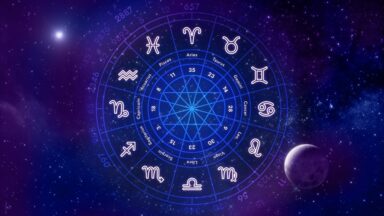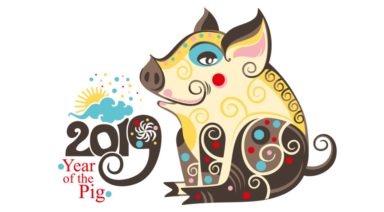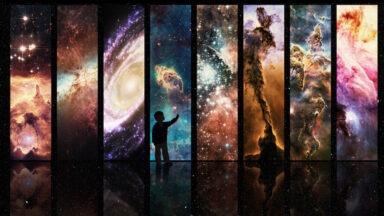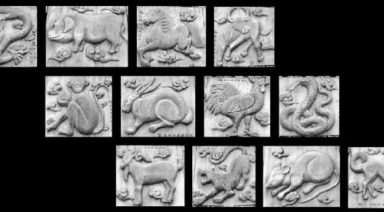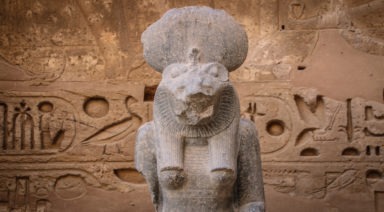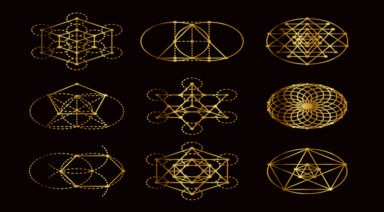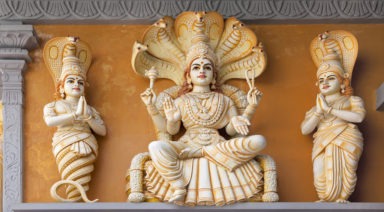Understanding Zodiac Sign Elements

According to Western astrology, the universe is shaped by four primary elements: Earth, Air, Fire, and Water. Here’s a quick look at their core traits:
- Earth: grounded, practical, reliable, nurturing, loyal, logical
- Air: intellectual, communicative, curious, social
- Fire: passionate, energetic, enthusiastic, courageous
- Water: emotional, intuitive, empathetic, nurturing
These elements symbolize different modalities of existence and have a strong influence on each astrological sign. None of the elements is intrinsically good or bad; each has advantages and disadvantages.
Your personality is complex, making self-assessment difficult. Understanding your sun sign element can provide clarity, allowing you to identify your strengths, flaws, and how you interact with others. The signs of the zodiac are each ruled by one of these elements, which shape their essential characteristics and relationships.
Identifying your dominant aspect might help you gain a better sense of functionality in relationships, employment, and self-development. This knowledge promotes emotional depth and personal development.
The Origins of the Four Elements of Nature
The concept of the four elements originates from the Greek philosopher Empedocles, who believed that all matter was a combination of these fundamental forces. While modern science has identified many more elements, these four still correspond to the four states of matter: solid, liquid, gas, and plasma.
These components define compatibility, habits, and personality traits in astrology. Each component also affects a person’s emotions, interactions with their surroundings, and personal development.
How to Find Out What Element You Are
Each horoscope zodiac sign is associated with one of the four elements: Fire, Earth, Air, or Water. This elemental alignment influences personality, behavior, and relationships. Understanding your rising sign, along with your sun sign, can provide a more detailed picture of how you express these traits.
Elements also determine whether you’re a mutable, fixed, or cardinal sign, affecting how individuals handle change, leadership, and stability. By recognizing these influences, you can better navigate personal and professional challenges.
Read on to discover how each element influences the signs of the zodiac and learn what your element reveals about your personality, relationships, and approach to life.
Earth Signs
Taurus (April 20-May 20)Virgo (August 23-September 22)Capricorn (December 22-January 19)
Earth signs are stable, practical, and grounded. Ruled by Jupiter and Pluto, they are deeply connected to the material world and prefer structure over unpredictability. They thrive in functional, long-term goals and build strong foundations.
If you’re an Earth sign, you are an artist and love to create. Your home is welcoming and warm and always open to friends and family, which is fitting considering you’re a bit of a homebody. While you are always friendly, you do not let people into the inner circle easily. However, once you do, you are loyal to a fault. On the opposite side of this, you can sometimes be overprotective.
Earth element signs appreciate comfort, security, and loyalty. While nurturing and dependable, they can be stubborn and bull-headed and will often stick to their position for no other reason than it is their position. In relationships, they are empathetic and nurturing and don’t mind waiting out a few rough patches. But Earth signs should be careful as this also makes it easy for others to take advantage of them.
Personality Traits
Strengths:
- Stable – Reliable and steady in all areas of life.
- Hard-working – Committed and determined to achieve success.
- Loyal – Forms deep, long-lasting relationships.
- Nurturing – Protective and supportive of loved ones.
- Logical – Thinks methodically and values reason.
- Empathetic – Understands and supports others emotionally.
Weaknesses:
- Stubborn – Struggles to adapt to change.
- Overly cautious – Hesitant to take risks.
- Resistant to change – Prefers routine and predictability.
- Rigid – Finds spontaneity challenging.
- Overprotective – Can be overly involved in others’ lives.
Compatibility: Earth signs pair well with Water signs, as Water nurtures Earth’s stability while Earth provides grounding for Water’s emotions. This creates a secure, supportive bond where Earth offers reliability and Water adds emotional depth. Together, they build lasting, harmonious relationships, though Earth’s rigidity and Water’s emotional intensity may require balance.
Air Signs
Gemini (May 21-June 21)Libra (September 23-October 22)Aquarius (January 20-February 18)
Air signs are intellectual, curious, and communicative. Ruled by Uranus, the “water bearer” of knowledge, Aquarius represents the forward-thinking nature of the Air element. These signs value logic, ideas, and social connections.
Of the four elements, Air is the most concentrated on thought. The bearers of the Air element think through every decision thoroughly and often find clever solutions to difficult problems. They are studious and scholarly and often see “the big picture” when others cannot.
While they thrive in stimulating environments, Air signs can be unpredictable and struggle with emotional depth. Their fast-moving minds can make them restless or detached from deeper emotions. Some are outgoing, rational and clever, while others are scattered, eccentric, and cold which can make relationships very difficult.
Air signs go with what makes sense and don’t believe in doing something because “it’s how it has always been done.” While Fire may be the face of the uprising, you are the brains behind it.
Personality Traits
Strengths:
- Thoughtful – Analyzes situations from multiple angles.
- Witty – Quick with humor and clever observations.
- Charming – Naturally engaging and likable.
- Carefree – Adaptable and lighthearted.
- Independent – Values personal freedom and autonomy.
- Flexible – Open-minded and willing to explore new ideas.
Weaknesses:
- Inconsistent – Struggles with commitment and follow-through.
- Insensitive – Overlooks emotional nuances in others.
- Selfish – Prioritizes intellect over relationships.
- Flaky – Easily distracted or prone to overcommitting.
- Detached – Finds deep emotional connections challenging.
Compatibility: Air signs complement Fire signs, as Air fuels Fire’s energy and ambition, while Fire adds passion to Air’s ideas. This pairing is exciting and adventurous, though Fire’s intensity and Air’s unpredictability may require balance.
Fire Signs
Aries (March 21-April 19)Leo (July 23-August 22)Sagittarius (November 22-December 21)
Fire provides heat and light, but it cannot exist on its own. Fire signs are passionate, confident, and driven. Governed by Jupiter, they thrive on energy, ambition, and excitement. They are natural leaders and radiate charisma and intensity. Fire signs follow their gut instinct and become fully committed to what they believe. Of the four elements, Fire is the most entertaining, drawing, and dynamic. They have the power of transformation and can convert any negative situation into a positive one.
However, their passion can also lead to impulsivity and strong tempers. Fire signs need grounding influences to maintain balance and avoid burnout. Loved ones are what motivate them and keep them stable. Without loved ones, passion can turn to obsession, quickly exhausting a Fire sign.
Personality Traits
Strengths:
- Passionate – Enthusiastic and energetic in all endeavors.
- Bright – Naturally charismatic and engaging.
- Charismatic – Draws people in with confidence and charm.
- Focused – Highly goal-driven and determined.
- Decisive – Acts quickly and with confidence.
- Daring – Unafraid to take risks.
Weaknesses:
- Temperamental – Prone to emotional outbursts.
- Impulsive – Acts before thinking.
- Unfaithful – Easily distracted by new experiences.
- Jealous – Struggles with possessiveness.
- Restless – Needs constant excitement.
Compatibility: Fire signs thrive with Air signs, as Air fuels Fire’s passion and energy, creating an exciting and dynamic connection. Fire brings enthusiasm, while Air adds intellect and adaptability, though Fire’s intensity and Air’s inconsistency may need balancing.
Water Signs
Cancer (June 22-July 22)Scorpio (October 23-November 21)Pisces (February 19-March 20)
Water is constantly flowing, with much of its activity happening below the surface. Water signs are deeply emotional, intuitive, and compassionate. Ruled by Pluto, they are highly attuned to their emotional depth and often connect on a profound level, which can sometimes make them overly trusting.
When spread too thin, Water signs are ineffectual, but when collected and focused, they are a force to be reckoned with. They see life as a journey, and every movement they make is part of a definite path (though sometimes an unexpected one).
They excel at understanding others but can become overwhelmed by emotions. Their ability to connect so deeply also makes them prone to carrying other people’s burdens. Setting healthy emotional boundaries is key to their well-being.
Personality Traits
Strengths:
- Understanding – Highly empathetic and intuitive.
- Trusting – Forms deep and lasting relationships.
- Devoted – Loyal and dedicated to loved ones.
- Forgiving – Willing to move past conflicts.
- Flexible – Adapts easily to emotional changes.
Weaknesses:
- Unstable – Prone to mood swings.
- Overwhelmed – Absorbs too many emotions.
- Irrational – Can react emotionally instead of logically.
- Gullible – Easily manipulated by others.
- Lacks boundaries – Struggles to say no.
Compatibility: Water signs form deep bonds with Earth signs, who offer stability and grounding, while Water adds emotional depth and intuition. This pairing thrives on trust and support, though Earth’s practicality and Water’s sensitivity may require balance.

How to Balance Your Element
Maintaining elemental balance is essential for well-being. Too much of one element can lead to burnout, overindulgence, laziness, aloofness, or insecurity. By recognizing which elements dominate your personality, you can develop a more harmonious approach to life.
For example, Fire signs should practice patience and mindfulness to temper their impulsivity. Water signs benefit from setting emotional boundaries, while Earth signs should embrace flexibility. Air signs need to stay grounded to maintain emotional connections.
For those interested in Eastern astrology, the Chinese zodiac elements—Wood, Fire, Earth, Metal, and Water—offer another perspective on elemental balance and self-discovery. Exploring both systems can provide deeper insights into personal growth and relationships.
Discover Your Moon Sign and Its Meaning in Astrology

The moon sign is one of the most significant elements in your birth chart, as it represents your emotional life, your inner needs, and the mechanisms you use to feel emotionally secure. Unlike the sun sign, which is associated with identity and willpower, the Moon describes how you feel, react, and manage your emotions. In this article, we explore what the moon sign is, how it is calculated, and which aspects of your inner world it can help you understand.
Table of Contents
- What Is The Moon Sign?
- How Is The Moon Sign Calculated?
- Can You Know Your Moon Sign Without Knowing Your Birth Time?
- What Does It Mean To Have The Moon In Each Zodiac Sign?
- How To Consciously Work With Your Moon’s Energy
What Is The Moon Sign?
The moon sign is the zodiac sign the Moon was in at the exact moment of your birth. This point in the birth chart reflects the way you feel, how you process what affects you, and what you need to feel emotionally secure. Unlike the sun sign, which shows your conscious identity, the moon sign reveals your automatic reactions and your inner life.
This sign describes how you experience emotions, what kind of affection you seek, and how you react when you feel vulnerable. It also speaks to your connection with family, how you seek protection, and the emotional patterns you tend to repeat. Observing your natal moon helps you identify what soothes you, what unsettles you, and how you connect with your inner world.
How Is The Moon Sign Calculated?
To calculate your moon sign, you need to know the exact date, time, and place of your birth. Since the Moon changes signs every two and a half days, even a difference of a few hours can change the result. There are online calculators that can give you this information quickly, although a full birth chart always offers a more accurate view.
The calculation is done by observing the position of the Moon in the zodiac at the moment of your birth. Once the sign is identified, you can begin to explore how that energy influences your emotional world and how it combines with other elements in your chart. Knowing your moon sign gives you a deeper perspective on what you feel, how you process it, and what you need to feel emotionally supported.
Can You Know Your Moon Sign Without Knowing Your Birth Time?
Knowing your moon sign without having the exact birth time is possible in some cases, but it’s not always accurate. The Moon changes signs every two and a half days, so if you were born on a day when the Moon did not change signs, you can calculate it confidently using only the date. However, if the Moon changed signs that day, you will need the exact birth time to determine your moon correctly.
When you don’t know your birth time, one option is to check your birth certificate or ask family members for help. If that’s not possible, some astrologers can perform a rectification: a method based on key life events to estimate your birth time more accurately. You can also read the descriptions of both possible moon signs and see which one you identify with most, although this method does not replace an exact calculation.
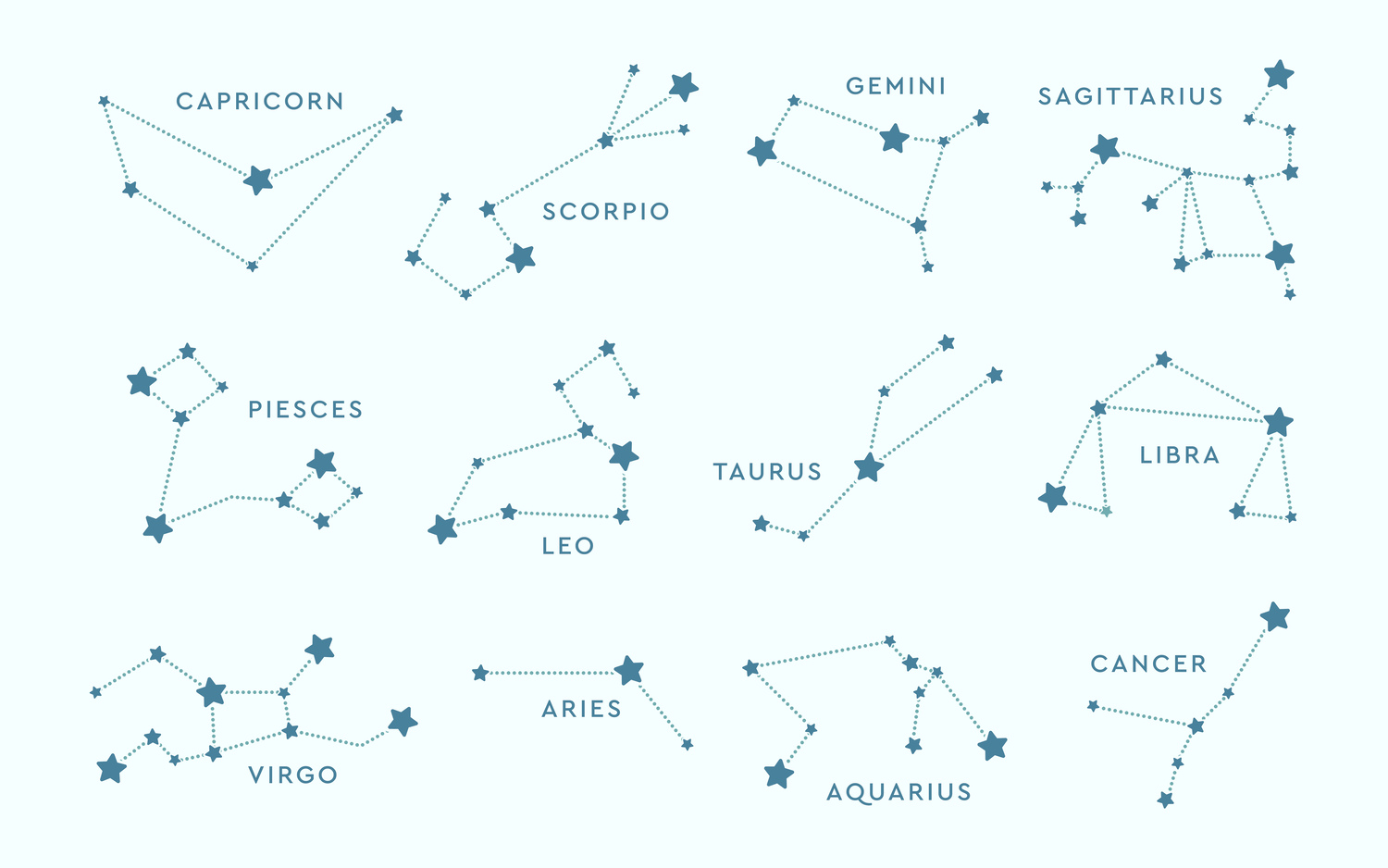
What Does It Mean To Have The Moon In Each Zodiac Sign?
The sign the Moon is in in your birth chart indicates how you live your emotions, what makes you feel secure, and how you express your emotional needs. Each moon sign brings a different tone to your inner world, influencing how you react, care for others, and seek comfort. Knowing your moon helps you better understand your sensitivity, your closest bonds, and the emotional dynamics you tend to repeat most often.
-
Moon In Aries
The Moon in Aries gives rise to an intense, impulsive emotional life with little tolerance for waiting. Reactions are often quick, direct, and in some cases, explosive. It’s common for emotions to be expressed frankly, without filters or detours, which can make beginnings easier but also create conflicts.
This lunar placement is expressed through a strong need to assert what one feels immediately. Emotions are experienced intensely and quickly transformed into action, which drives impulsive reactions. The main emotional challenge is learning to regulate impulses, sustain emotional processes beyond the initial moment, and develop tolerance for frustration.
-
Moon In Taurus
The Moon in Taurus is associated with a strong need for emotional stability, security, and sensory enjoyment. People with this moon tend to process their emotions slowly but with depth and firmness. Once they get attached, they do so with loyalty and consistency.
This energy encourages attachment to the familiar, finding pleasure in the everyday, and connecting with the senses as a way to find inner calm. There may be some resistance to change or to open emotional expression, so the lesson lies in cultivating flexibility and emotional openness without losing the sense of security.
-
Moon In Gemini
The Moon in Gemini links the emotional world with thought, curiosity, and the need for exchange. Emotions tend to be processed through words, reflection, and dialogue—as if understanding what is felt were an indispensable step before actually living it. This placement brings emotional flexibility, quick mood changes, and a great capacity to adapt to different emotional stimuli.
This position promotes curiosity, cleverness, and an open emotional attitude, although it can also make it difficult to connect with emotional depth. The challenge lies in not constantly intellectualizing what is felt, and in learning to sustain emotional connection without the need to explain it all the time.
-
Moon In Cancer
With the Moon in Cancer, emotions are experienced with great intensity, sensitivity, and depth. This is the Moon’s ruling sign, which makes this placement especially strong. There is a deep connection to the past, the home, family, and bonds that provide emotional security.
This energy favors nurturing, protection, and the desire to build lasting relationships. However, it can also lead to emotional dependence or an excessive need for emotional shelter. The learning process involves nurturing the inner world without shutting down or absorbing others’ emotions as your own.
-
Moon In Leo
The Moon in Leo brings an emotional expression marked by the need for recognition, affection, and validation. There is a deep desire to feel valued and a tendency to share feelings in a generous and open way. Emotions are expressed with strength and enthusiasm.
This moon has a very high creative and expressive potential, though it can also lead to pride or difficulty in showing vulnerability. The path of growth involves cultivating authenticity without relying on external approval, and learning to receive love without the constant need to prove one’s worth.
-
Moon In Virgo
The Moon in Virgo is expressed through a need for order, clarity, and usefulness on the emotional level. Emotions are filtered through analysis, logic, and the desire for constant improvement. It’s common for caring for others to be a way of expressing affection.
This energy may lead to emotional demands, both internally and toward others, especially when feelings don’t follow a clear or understandable pattern. The emotional lesson is to embrace imperfection, trust intuition, and allow emotions to flow without needing to control or correct them.
-
Moon In Libra
The Moon in Libra tends to seek emotional balance through connection with others. There is a special sensitivity toward harmony and emotional reciprocity. This placement enhances the ability to listen, mediate, and maintain calm in tense situations, although it may also lead to a strong dependence on others to validate one’s emotions.
The desire to please and avoid conflict can lead to prioritizing others’ well-being over one’s own. Emotional growth involves cultivating an internal center that does not rely on others’ reflections, and learning to make emotional decisions more aligned with genuine desire—even when this means discomfort or disagreement.
-
Moon In Scorpio
The Moon in Scorpio is characterized by deep, intense, and transformative emotionality. There’s a natural tendency to experience highly complex feelings, often in a reserved or silent manner. This moon grants strong intuition, great capacity for emotional regeneration, and a magnetism that can attract deeply meaningful bonds.
However, it can also trigger defense mechanisms such as distrust, control, or the need to protect what is most intimate. The challenge is to channel intensity without falling into drama or constant self-defense, and to allow oneself to trust without feeling that it threatens emotional safety.
-
Moon In Sagittarius
The Moon in Sagittarius encourages an optimistic, enthusiastic, and expansion-oriented emotional expression. There is a need for emotional freedom, movement, and connection to broader ideas that give meaning to the emotional experience. This placement favors spontaneity, humor, and a positive attitude in the face of difficulties.
Nevertheless, there may be a tendency to minimize uncomfortable feelings or to escape from heavier emotions. The emotional path involves learning to inhabit moments of vulnerability too, without needing to turn everything into action or philosophical meaning. Integrating the inner world as a space as valuable as the outer one is part of this moon’s evolutionary process.
-
Moon In Capricorn
The Moon in Capricorn is associated with a reserved, practical, and control-oriented emotional attitude. Emotions are often channeled through responsibility, commitment, and a need for structure. There may be a tendency to hold back feelings to avoid appearing vulnerable, prioritizing stability over emotional expression.
This placement favors emotional maturity and the ability to sustain long-term processes, although it may also make spontaneous emotional connection more difficult. Inner growth involves learning to trust the emotional world as a legitimate source of wisdom and expressing one’s needs without fear of seeming weak.
-
Moon In Aquarius
With the Moon in Aquarius, emotions are processed through reason and with a certain distance, avoiding becoming too personally involved. This placement promotes a more rational than instinctive emotional connection, with a strong need for emotional independence. Inner freedom and respect for difference are key to feeling emotionally balanced.
Although it encourages objectivity and open-mindedness, this moon can lead to emotional disconnection or difficulty sharing intimacy. The learning process involves integrating the emotional dimension without always trying to explain it intellectually, and allowing vulnerability to coexist with the need for autonomy.
-
Moon In Pisces
The Moon in Pisces is characterized by a sensitive, empathetic, and permeable emotionality. There is a strong connection to the inner world, imagination, and the intangible, which brings a great capacity to connect with others’ feelings. This moon fosters compassion, surrender, and emotional expression through art or silence.
However, there can also be a tendency toward escapism, confusion, or difficulty in setting clear boundaries. Emotional work involves learning to distinguish what belongs to oneself from what belongs to others, maintaining a solid emotional identity, and channeling sensitivity without becoming lost in it. Intuition is a powerful tool, as long as it’s accompanied by clarity and grounding.
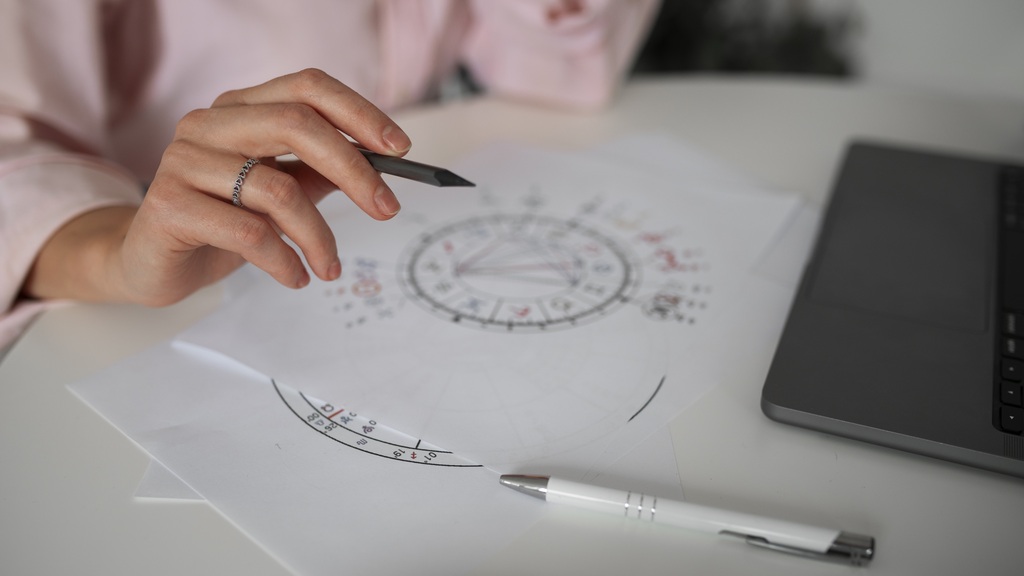
How To Consciously Work With Your Moon’s Energy
The first step to working with your moon’s energy is to observe how it expresses itself in your daily life. Pay attention to your reactions when something unsettles you, to what you need in order to feel calm, and to the emotional patterns that repeat most often. It’s not about changing these mechanisms right away, but about recognizing them with honesty.
Each moon has its own way of feeling, protecting itself, and relating. Honoring that particular form is a way of caring for your emotional balance. You might need more space, more support, or more connection with your body. What matters is understanding your needs without judging them or trying to mold them to external expectations.
Incorporating simple practices can help you connect with your inner world: writing down what you feel, practicing conscious breathing, setting clear boundaries, or simply making time for yourself. These actions strengthen your bond with lunar energy and allow you to better support yourself during moments of instability or sensitivity.
Working with your moon is a process of self-knowledge that is built with patience. As you learn to respect your emotional rhythms, your way of relating to others also transforms. The connection with your moon can be a guide to living with greater authenticity, balance, and sensitivity.




